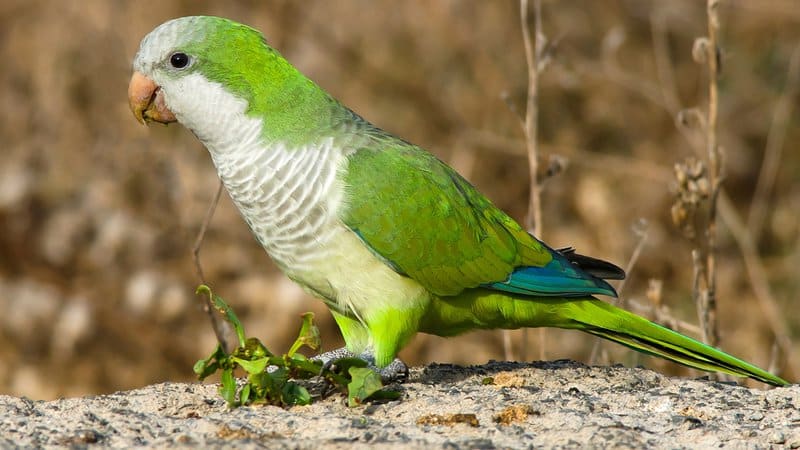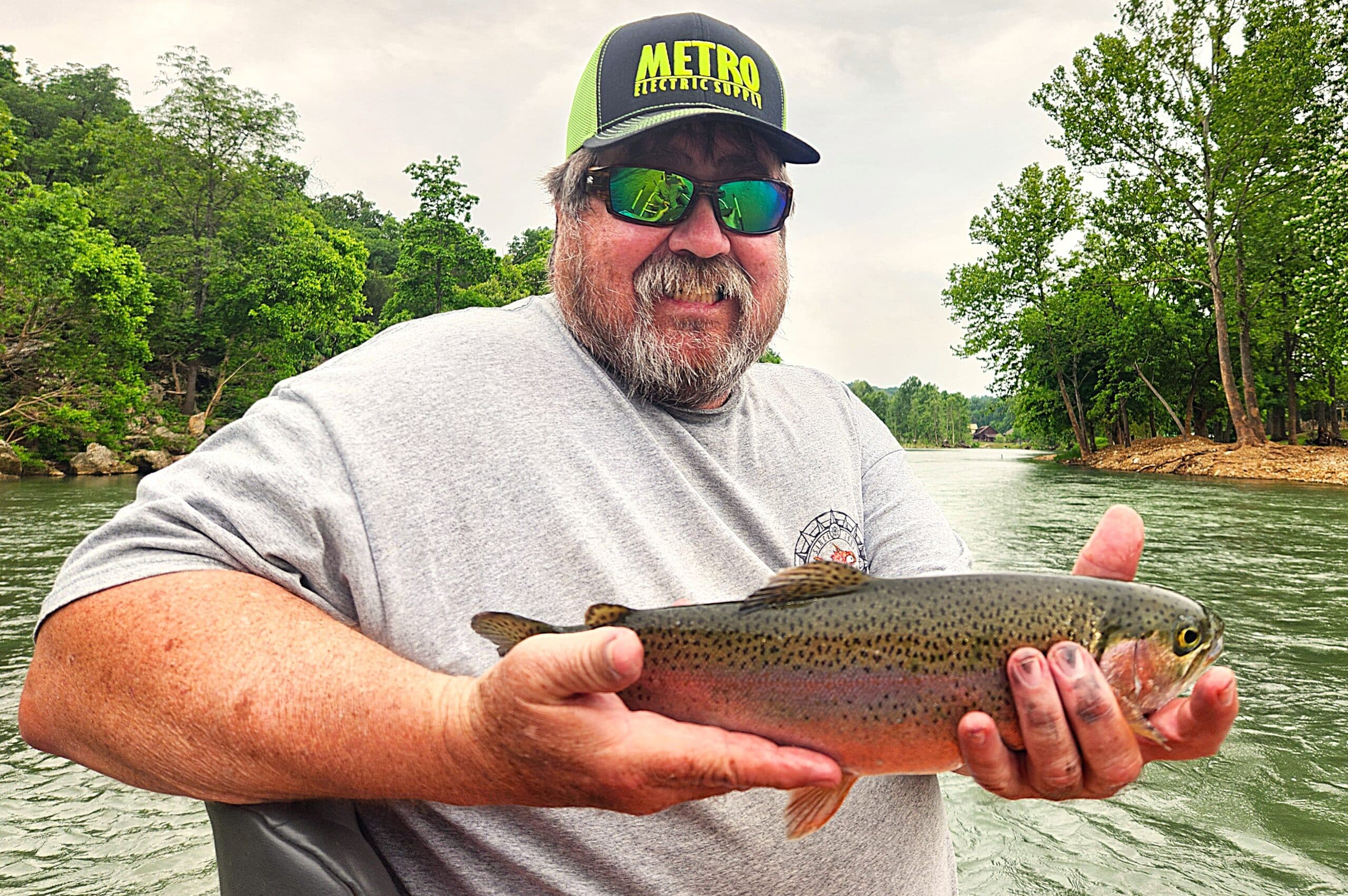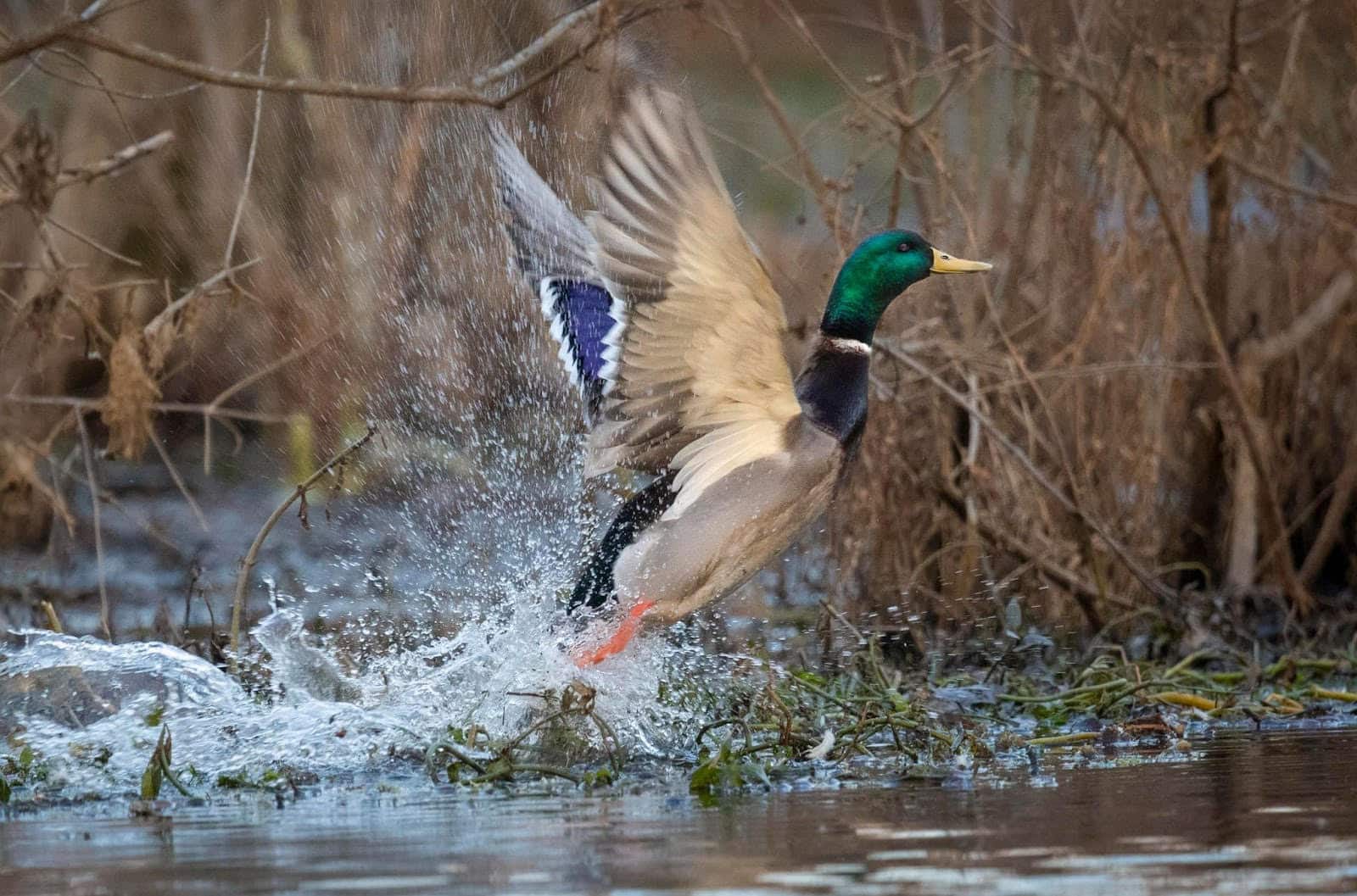Deadline for exotic bird permits July 1
BY agfc
ON 05-26-2021

May 26, 2021
LITTLE ROCK — Arkansans who have not updated or obtained their permits for owning, breeding or dealing certain exotic captive bird species have until July 1 to submit their application. This includes any permittees who may not have all the proper documentation such as bills of sale, certificates of veterinary inspection or wildlife importation permits usually required to obtain these permits for what the Commission considers captive wildlife. The Arkansas Game and Fish Commission is working with these customers to get them into compliance.
The following exotic bird species currently require a permit:
- Alexandrine parakeet
- Chukar
- Monk parakeet (Quaker parrot)
- Ostriches
- Ring-necked pheasant
- Rose-ringed parakeet
- White-necked raven
- Pied crow
AGFC defines wildlife as “All wild birds, mammals, fish, reptiles, amphibians, other wild aquatic forms and all other wild animals, regardless of classification, whether resident, migratory or imported, protected or unprotected, dead or alive, and shall extend to and include any and every part of any individual species of wildlife, including animals living in a captive state.” All non-domestic animal species are classified as wildlife in Arkansas, whether they are native or exotic, free-ranging or captive-born. Many non-traditional pet species fall within this category of wildlife, which places responsibility for their oversight with the Arkansas Game and Fish Commission.
Exotic birds kept as pets, including parrots and their relatives, pheasants and other game birds, and ostriches and exotic crows kept in captivity are considered wildlife and fall under AGFC captive wildlife regulations. As a general rule, non-domesticated wildlife species do not make good pets, but captive-bred and reared parrots, conures, and cockatiels, to name a few, are popular pets with individual bird fanciers.
“Some species could cause harm to people if not contained or cared for properly, while others could possibly carry diseases that could decimate native wildlife populations if they or any equipment used to handle them is exposed to native habitat,” said Ashley Grimsley-Padron, AGFC captive wildlife program coordinator. “For example, avian influenza could negatively impact native waterfowl and other native birds as well as the Arkansas poultry industry, subsequently, it is illegal to import any species of non-domestic waterfowl, including swans, into Arkansas. Other nonnative bird species that escape or get released could become invasive and cause harm to native wildlife or habitat.”
During the last two years, the Arkansas Game and Fish Commission has evaluated and updated many regulations concerning the possession, breeding and sale of non-domestic exotic pets, including birds. Biologists and the state wildlife veterinarian evaluated many species for risk to Arkansas and made changes to the unrestricted, permitted, and prohibited species lists. These changes made it possible to breed, sell and import over 85 exotic bird species without permits, however other species require more oversight. Before the captive wildlife regulations overhaul in February 2019, most wildlife imported, bred or sold required a Wildlife Importation and Wildlife Breeder/Dealer permit.
“We have sought input from organizations and individuals throughout the regulation process, and will continue to do so,” Matthew Warriner, AGFC assistant chief of wildlife management, said. “Some species do pose enough risk to people and native wildlife if they are improperly kept that we do require a permitting process to help prevent issues that may arise from escape or disease transmission.”
Captive wildlife pet species as well as exotic game birds fall under one of three categories, based on their potential risk to human health and the health of native wildlife:
Unrestricted species may be possessed without a permit and may be imported, bred or sold without importation permits or breeder/dealer permits issued from the AGFC. Many of the common exotic pets found at pet stores are on this list. This list included most parrot species, as well as cockatiels, exotic finch species, and some species of exotic quail.
Permitted species may only be imported, bred or sold in accordance with Codes 9.07 (Wildlife Breeder/Dealer Permit) and 9.10 (Wildlife Importation Permit). These species could present a danger to people, domestic animals or native wildlife should they escape captivity. Escaped or intentionally (illegally released) Quaker parrots and rose-ringed parakeets have shown the ability to establish wild populations in North America and Europe. These feral populations also cause damage to powerline structures and may impact native bird populations. Other species require permits because they demonstrate traits that indicate they could also establish breeding populations if released from captivity in Arkansas.
Prohibited species are those species which pose an extreme risk to humans, domestic animals or native wildlife or those species that collection from the wild could contribute to declines or extinctions within their native range, both in Arkansas and abroad. Breeding, sale and importation of these species is not allowed and no permits will be issued by the AGFC other than for special circumstances such as accredited zoos and raptor propagators permitted by the U.S. Fish and Wildlife Service.
“We want to give people the opportunity to get into compliance with the regulations but we need to make sure we continue to protect Arkansans and our natural resources,” Warriner said.
Complete and up-to-date species lists are available at www.agfc.com/en/wildlife-management/captive-wildlife/species-lists.
Applications, fact sheets and species lists concerning captive wildlife including exotic birds are available at www.agfc.com/en/wildlife-management/captive-wildlife.
Recent News

Arkansas Wildlife Weekly Fishing Report
Jun. 26, 2025

2025-26 Federal Duck Stamp reveal Friday
Jun. 26, 2025
Subscribe to Our Weekly Newsletter E-mails
Don’t miss another issue. Sign up now to receive the AGFC Wildlife Weekly Newsletter in your mailbox every Wednesday afternoon (Waterfowl Reports are published weekly during waterfowl season and periodically outside the season). Fishing Reports arrive on Thursdays. Fill in the following fields and hit submit. Thanks, and welcome!
